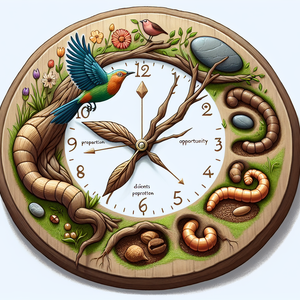The Economics of Spin-offs: How Game of Thrones Created a Franchise

"Game of Thrones," adapted from George R.R. Martin's "A Song of Ice and Fire" book series, became a cultural phenomenon during its tenure from 2011 to 2019. Its intricate plots, multifaceted characters, and high production values garnered a loyal global audience, making it one of the most-watched series in television history. HBO recognized the monumental potential beyond a single series and began exploring avenues to sustain viewer interest and revenue through spin-offs. This foresight was instrumental in laying the groundwork for what would become an expansive franchise.
Strategic Development of Spin-offs
In the wake of "Game of Thrones'" success, HBO announced an ambitious slate of spin-offs, with "House of the Dragon" being the first to materialize. Set 200 years before the original series, this prequel delves into the rich history of House Targaryen and their quest for dominance. By leveraging established lore and familiar characters, HBO aimed to attract both veteran viewers and newcomers alike. The strategic timing of the release, coinciding with the original series' conclusion, was crucial in maintaining subscriber interest in HBO Max, the network's streaming service. This calculated approach ensured a seamless transition from one flagship series to another, keeping the audience engaged.
Financial Implications of a Franchise Model
The successful introduction of spin-offs has profound financial implications for HBO. By adopting a franchise model, the network taps into multiple revenue streams: subscriptions to HBO Max, merchandise sales, and licensing deals. Each new series generates excitement and anticipation, often leading to spikes in subscriptions and viewership. For example, "House of the Dragon" debuted with a staggering 10 million viewers on its premiere night, underscoring the franchise's enduring popularity. This model enables HBO to recoup its substantial investments in production while maximizing profitability across various platforms.
Enhancing the Cultural Footprint
Beyond mere financial gains, the expansion of the Game of Thrones universe through spin-offs enhances its cultural footprint. Each new series offers deeper explorations of the intricate world created by Martin, fostering robust discussions among fans and critics alike. This ongoing dialogue not only keeps the franchise relevant but also reignites interest in the original series and its themes. Moreover, the expansion opens avenues for educational content, including documentaries and behind-the-scenes features, further engaging audiences and enriching their experience.
Challenges and Risks of Expansion
The franchise model, while laden with opportunities, also presents significant challenges. The risk of diminishing returns looms large; as more content is produced, the necessity of maintaining high-quality storytelling becomes paramount. Additionally, the expectations of fans are exceptionally high following the original series' monumental success, creating potential backlash if subsequent offerings do not meet established standards. HBO must navigate these hurdles judiciously to ensure the franchise's longevity.
Supporting Examples
The success of "House of the Dragon" exemplifies HBO's effective utilization of its existing fanbase. Strategic marketing campaigns, including teasers, trailers, and interactive content on social media, generated substantial anticipation. The series' release schedule was meticulously crafted to sustain viewer engagement and encourage discussions about the lore and characters, ultimately driving subscriptions to HBO Max. Further, HBO's commitment to expanding the Game of Thrones universe is evident in other spin-offs in development, such as "The Tales of Dunk and Egg" and "9 Voyages." Each new project adds layers to the franchise, ensuring it remains a relevant topic of conversation and interest for years to come.
The economic strategies driving the expansion of the Game of Thrones universe illuminate the evolving landscape of television and the potential of franchises to propel viewership and revenue. By developing spin-offs and prequels, HBO has not only capitalized on its existing fanbase but has also set a new standard for future television series. As the franchise continues to grow, it will be intriguing to observe how HBO navigates the inherent challenges and opportunities, ensuring the legacy of Game of Thrones endures in the hearts and minds of fans around the globe. The success of this franchise model may well serve as a blueprint for the future of television entertainment.
Television Development Executive
HBO, Netflix, Amazon Studios, Disney+
Core Responsibilities
Identify and evaluate potential projects for development, including spin-offs and sequels of existing franchises.
Collaborate with writers, producers, and marketing teams to shape concepts and ensure alignment with the brand’s vision.
Analyze viewer trends and market data to inform strategic decisions on new content opportunities.
Required Skills
Strong understanding of television programming and audience engagement metrics.
Excellent communication and negotiation skills to foster relationships with creative talent and stakeholders.
Experience in project management and budget forecasting.
Content Marketing Strategist for Streaming Platforms
HBO Max, Hulu, Peacock, Paramount+
Core Responsibilities
Develop and implement marketing strategies to promote new series and spin-offs, maximizing viewer engagement and subscriptions.
Create compelling content for social media, email campaigns, and promotional materials that resonate with target audiences.
Analyze campaign performance and audience feedback to iterate on marketing tactics.
Required Skills
Proficiency in digital marketing tools and analytics platforms (e.g., Google Analytics, Hootsuite).
Experience in brand storytelling and audience segmentation techniques.
Creative mindset with a strong grasp of current pop culture trends, particularly in television.
Franchise Development Manager
Warner Bros., Universal Pictures, Sony Pictures
Core Responsibilities
Oversee the expansion of existing franchises through the development of new content, merchandise, and licensing opportunities.
Conduct market research to identify potential growth areas and audience preferences within the franchise.
Collaborate with cross-functional teams to ensure cohesive brand messaging across multiple platforms.
Required Skills
Strong analytical skills with the ability to interpret data and market trends.
Experience in brand management and product development within the entertainment industry.
Excellent leadership and project management skills to coordinate diverse teams.
Script Supervisor for Television Series
HBO, ABC, NBC, FX Networks
Core Responsibilities
Maintain continuity of the script and ensure adherence to the storyline during production, especially for spin-offs and sequels.
Work closely with directors and writers to provide feedback on script changes and support narrative consistency.
Document all changes and track notes for post-production and future episodes.
Required Skills
Strong understanding of screenplay formats and story structure.
Attention to detail and excellent organizational skills to manage multiple scripts and revisions.
Experience in television production environments, ideally with a focus on scripted series.
Audience Engagement Specialist
HBO, Netflix, social media agencies specializing in entertainment
Core Responsibilities
Design and execute strategies to foster connection with audiences through interactive content and community management for new series.
Analyze viewer feedback and engagement metrics to refine content offerings and marketing strategies.
Facilitate discussions and events that enhance viewer investment in franchises, such as Q&A sessions or fan forums.
Required Skills
Strong knowledge of social media platforms and audience engagement techniques.
Excellent communication skills to effectively interact with diverse fan communities.
Experience in content creation, particularly in fostering viewer interactions and discussions.


